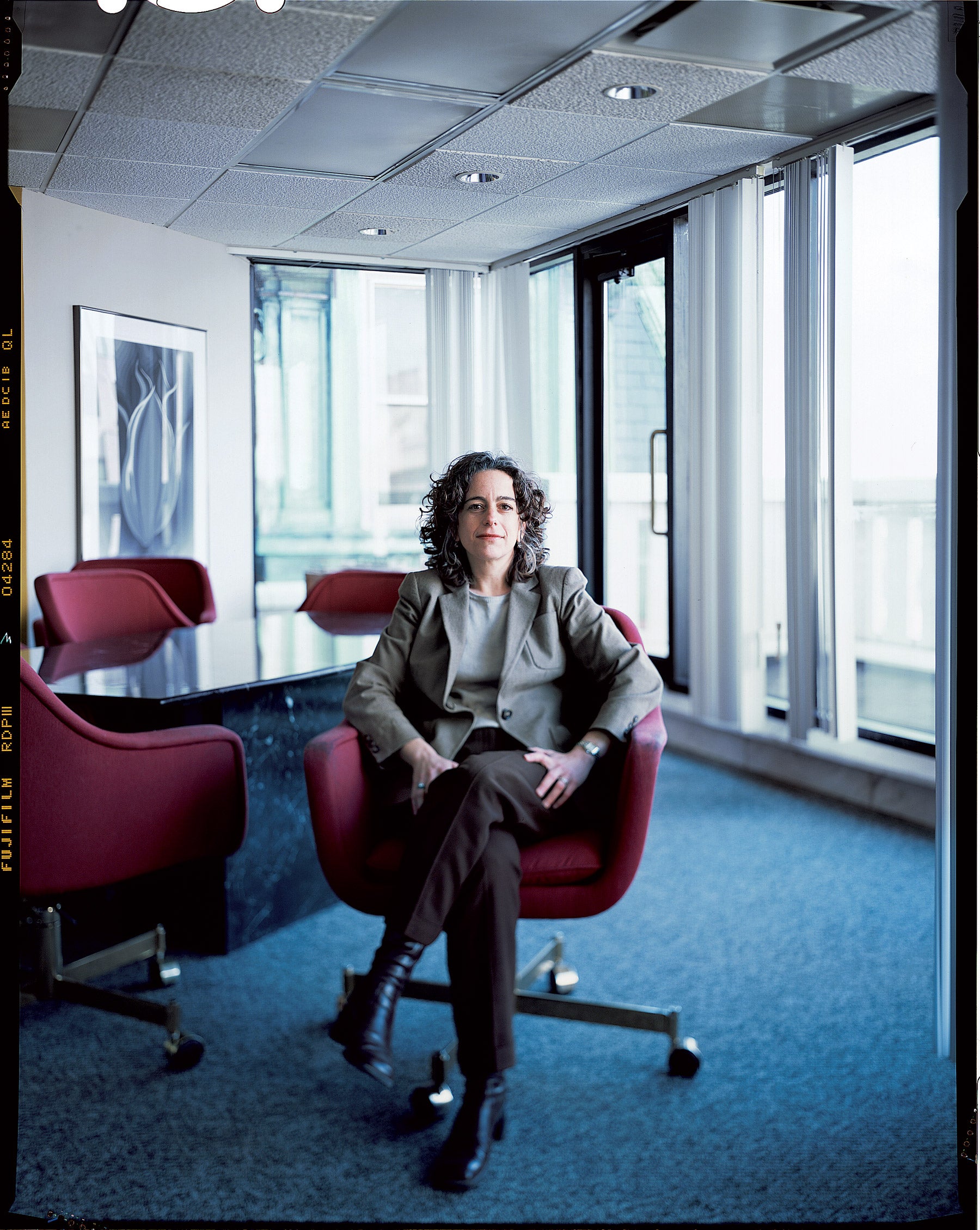Linda Singer ’91 heads an organization bridging private practice and public service
Traveling across the country, sowing apple seeds and watching them grow sounds like an American folktale. For Linda Singer ’91, it’s her job.
As executive director of the Washington, D.C.-based Appleseed Foundation, a network of nonprofit public interest law centers, Singer recruits lawyers and business professionals to form local centers to address public policy issues. In the past decade, she has helped the organization expand from one center in Boston to 16 in 14 states and Mexico. In the process, the foundation has generated more than $30 million in pro bono support for projects as diverse as a death-penalty moratorium in Illinois, a meatpacking workers’ bill of rights in Nebraska and a bill that bolsters protection against predatory lending practices in South Carolina.
The idea for the Appleseed Foundation germinated at the 35th reunion of the HLS Class of 1958, when a group of alumni, many of whom began their careers in government during the Kennedy administration, decided it was time to give back. They raised $150,000, assembled a board of 29 classmates and formulated a vision of national law centers focused on projects that promoted social change. In late 1993, they hired Singer, giving her a mandate to make the founders’ vision a reality.
“I used to joke that my job was like that person who came into your house and threw dirt on your rug and promised they could clean it up,” said Singer. “But we didn’t have a vacuum cleaner then. It really was a leap of faith.”
Singer had previously worked as a defense attorney for the Legal Aid Society of New York, representing people charged with misdemeanors and felonies. Although she loved being a public defender, she felt she wasn’t “advancing the system.”
“Your clients come back,” she said. They face other charges or are victims of other crimes. “What has always interested me about Appleseed is the ability to step beyond people’s individual legal problems to try to fix the systems that make and leave people vulnerable.”
A 1988 graduate of Harvard College, Singer says she attended law school knowing she wanted to be involved in public service. While at HLS, she worked as the Boston-area coordinator for Amnesty International and was active in the law school’s clinical program. Among her mentors was Professor Gary Bellow ’60, then faculty sponsor of the Hale and Dorr Legal Services Center.
In 1990, as a founding member of the HLS Coalition for Civil Rights, she was one of a group of students who filed suit against HLS, alleging that the school had engaged in discriminatory hiring practices that unfairly excluded many women and minority candidates from tenured and tenure-track appointments. She later worked with former HLS Professor Derrick Bell on his book “Confronting Authority: Reflections of an Ardent Protester.”
A parent of 5- and 7-year-olds in the D.C. public school system, Singer is lobbying for school reform in D.C. and working with Appleseed centers to find a way to fairly implement the No Child Left Behind Act. She also spends much of her week persuading lawyers and other professionals to volunteer their time and talent at local Appleseed centers, and to collaborate on national issues.
“One of the real challenges I see for people who are public interest lawyers or thinking about being public interest lawyers is sometimes the sense that the smartest, most ambitious, most driven students go into private practice,” said Singer. “I’ve always believed it takes so much intelligence and stamina and creativity to make things work when you don’t have the private- sector resources behind you.” Appleseed, she believes, bridges the divide between private practice and public service.
In October, the foundation celebrated its 10th anniversary. Over the next decade, it plans to add up to 10 new centers. “Ultimately, there will be an Appleseed Center everywhere,” said Singer, “because the needs are there and the commitment to do good is there.”
